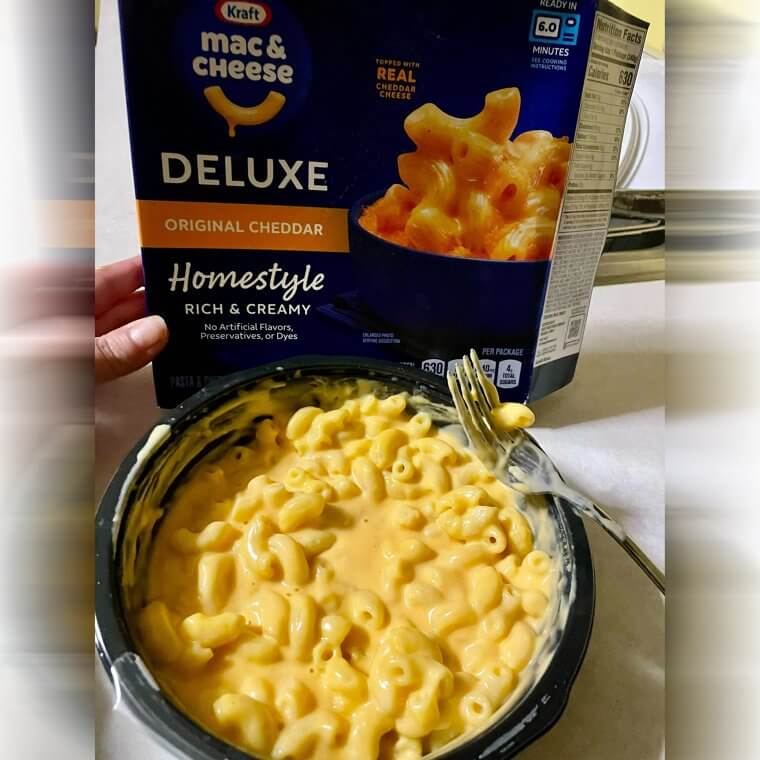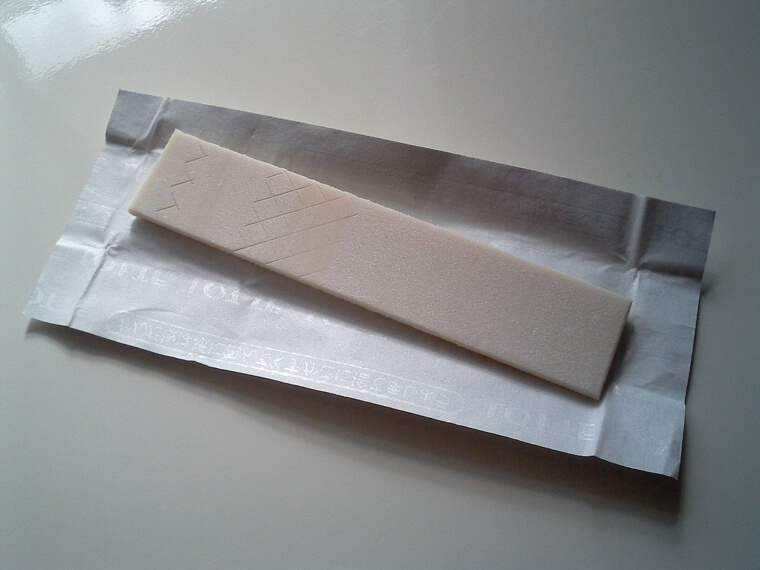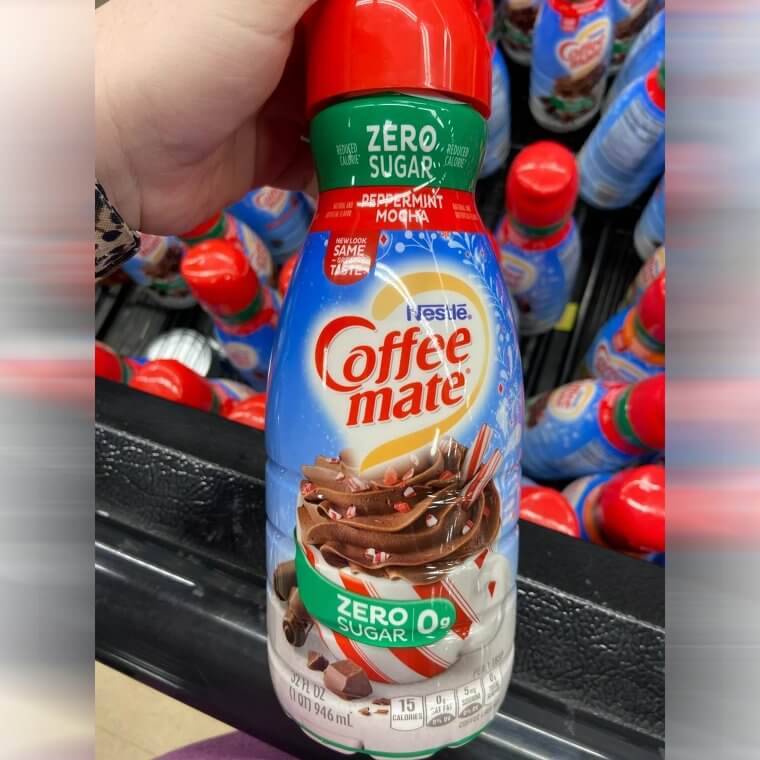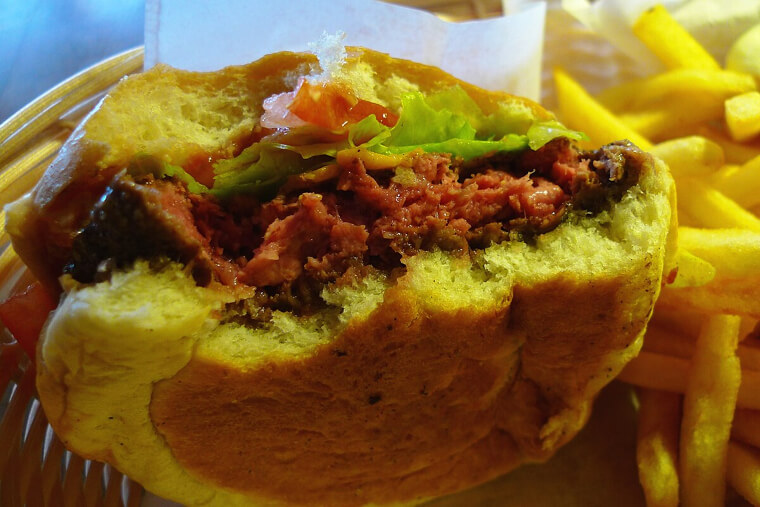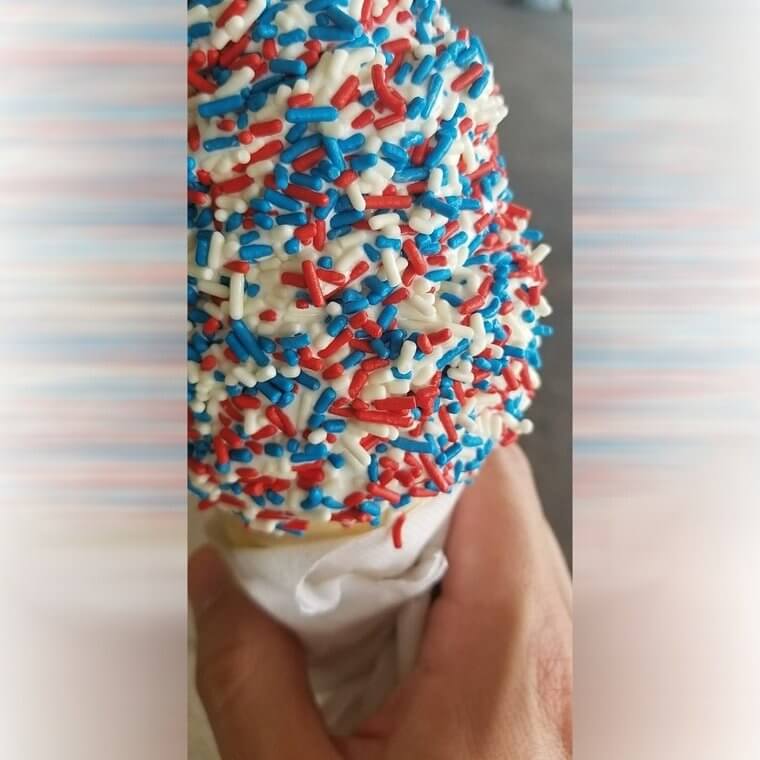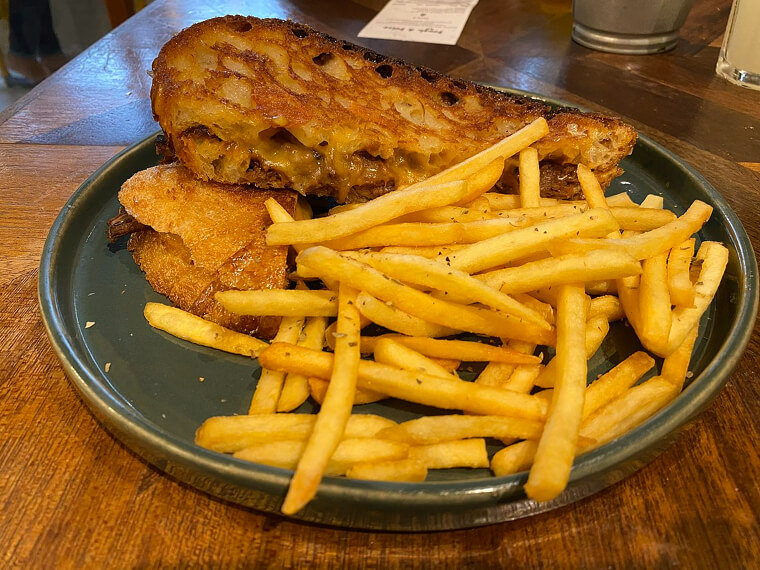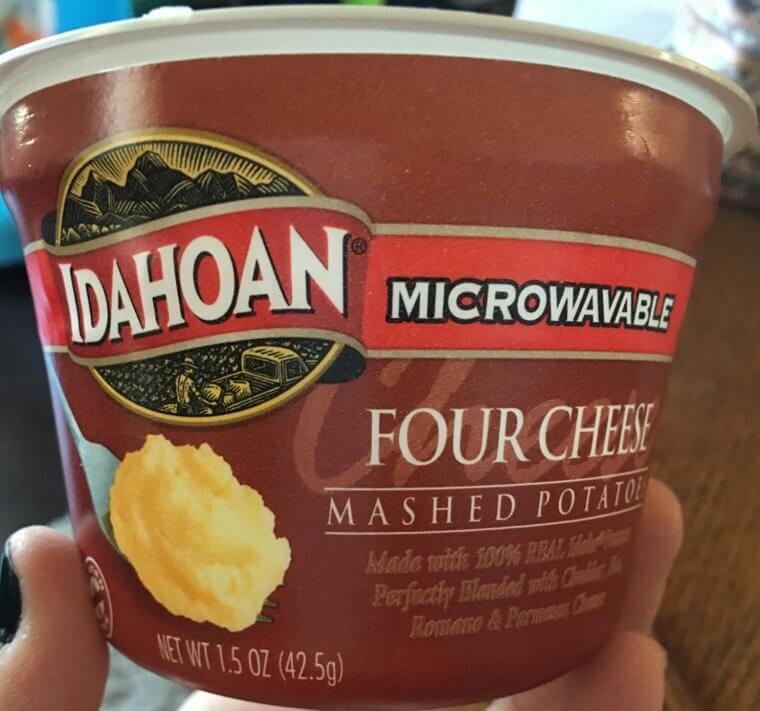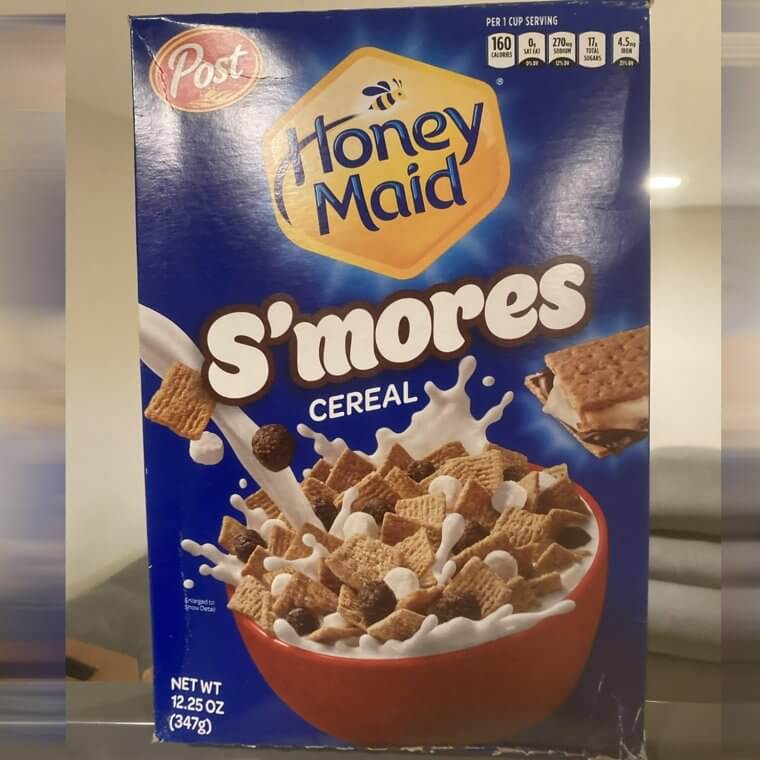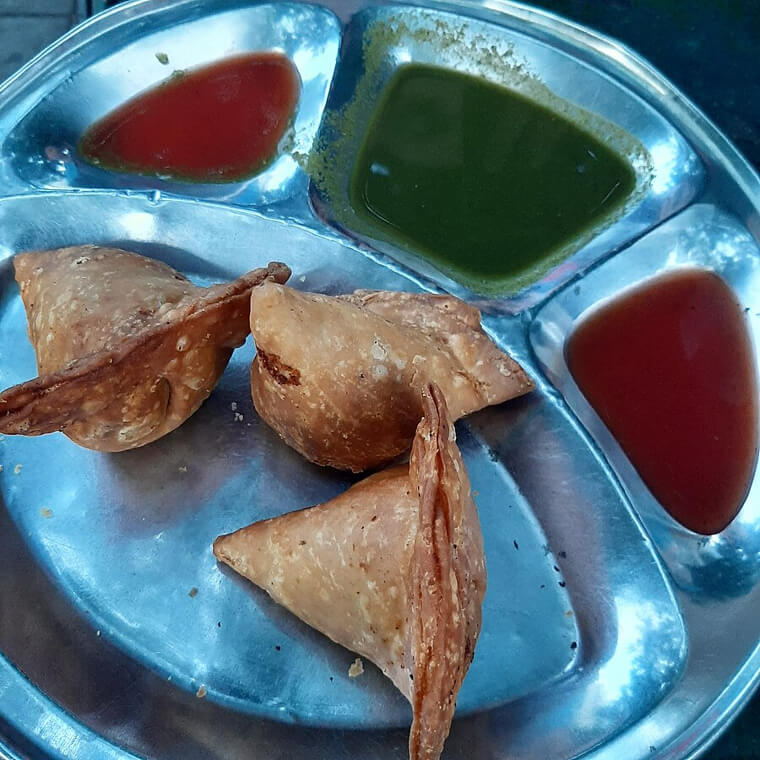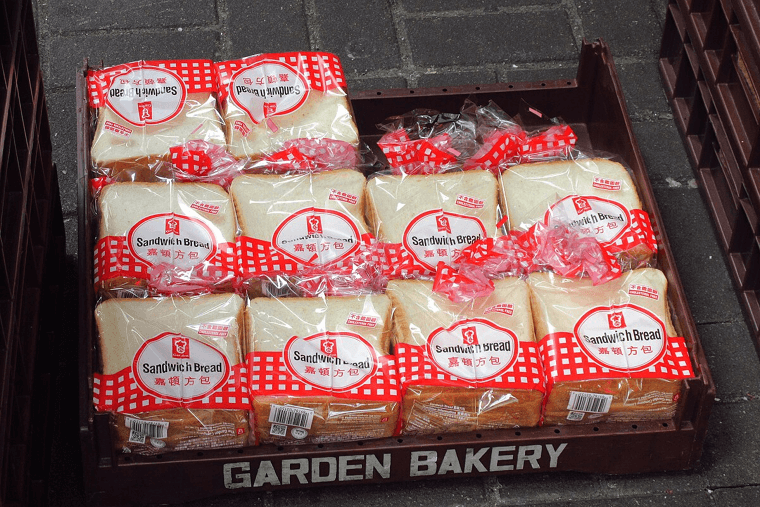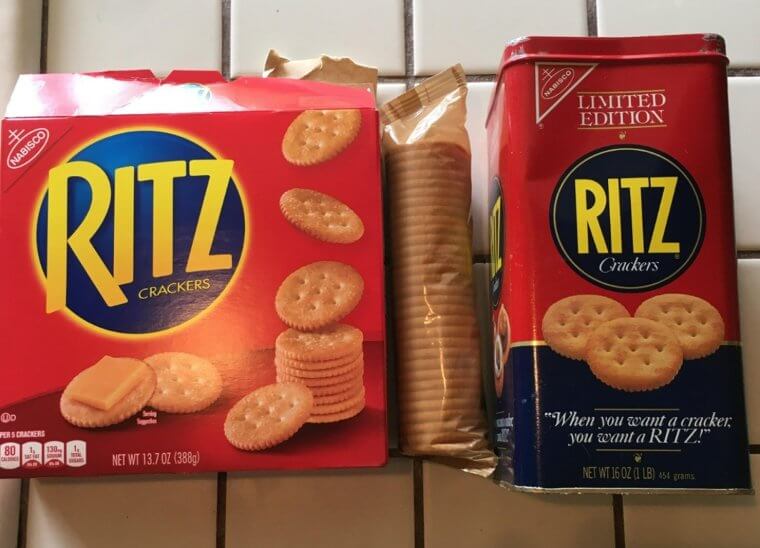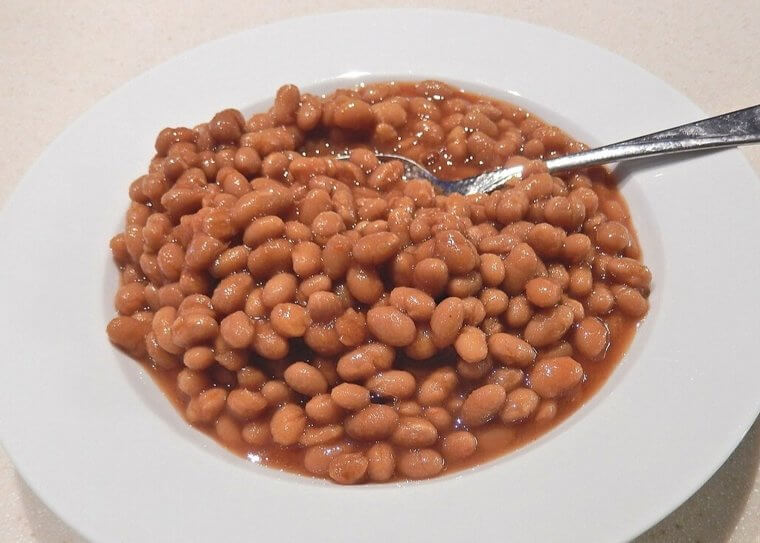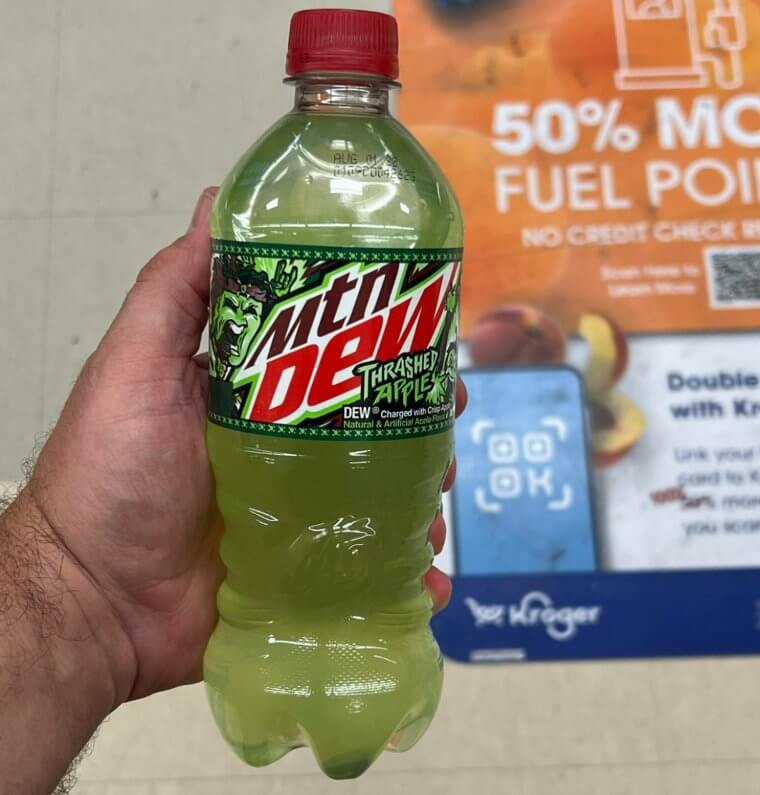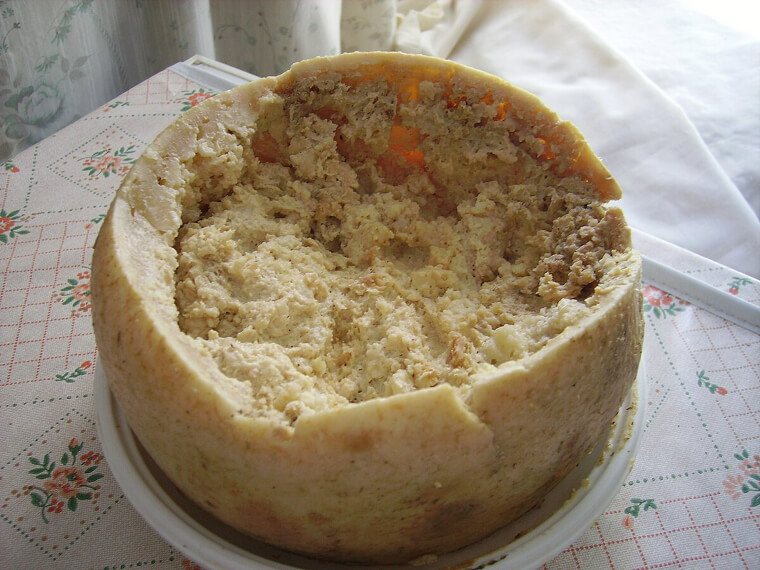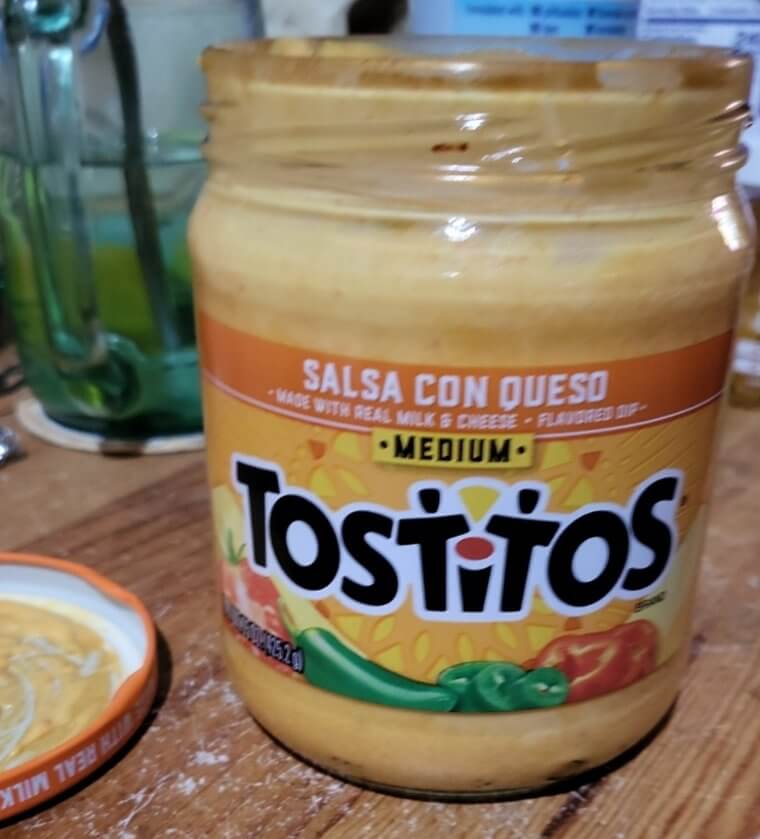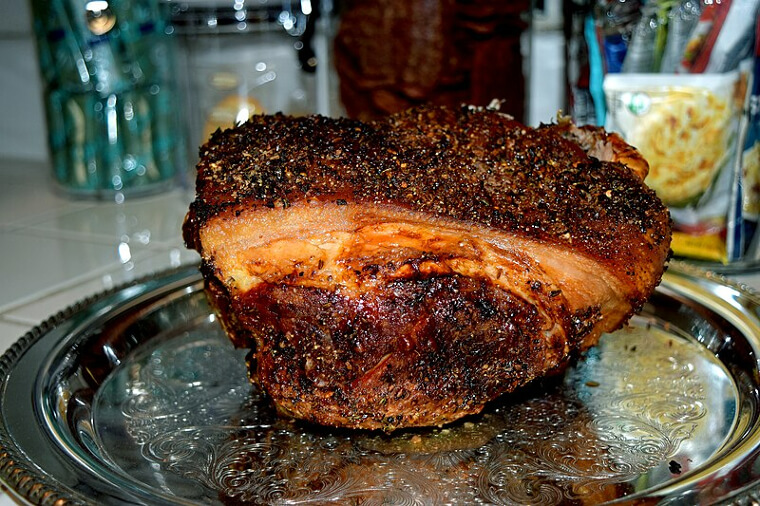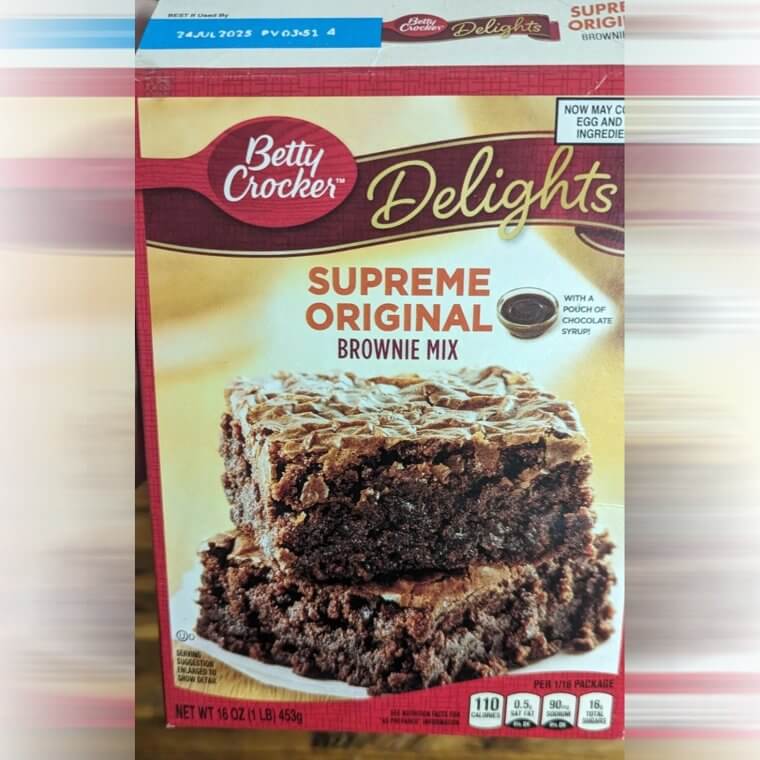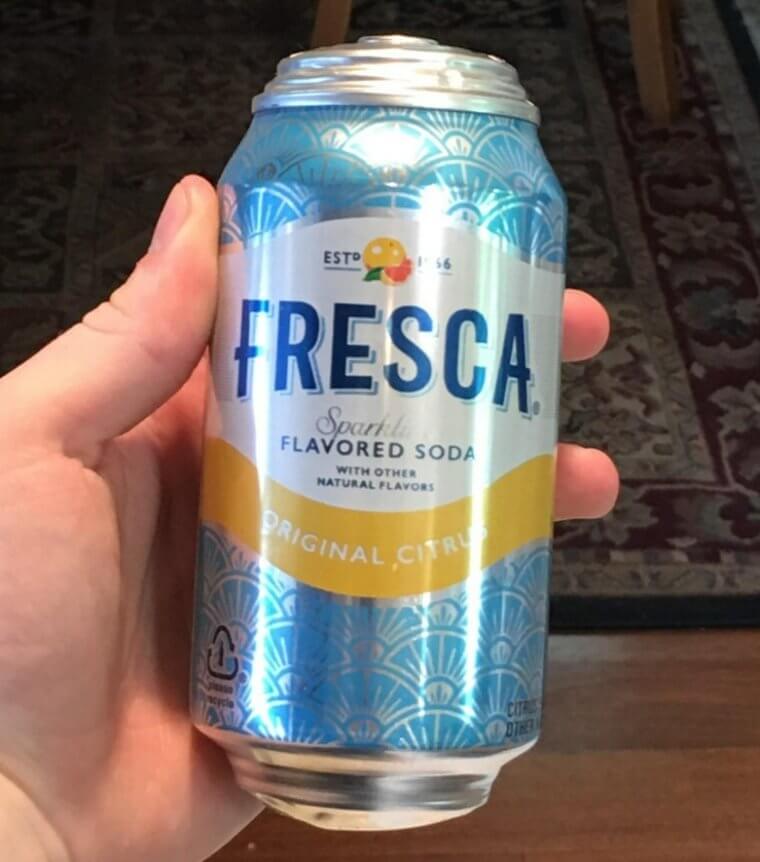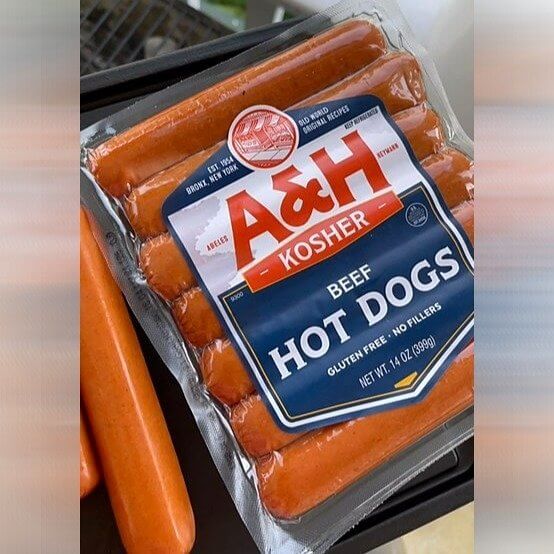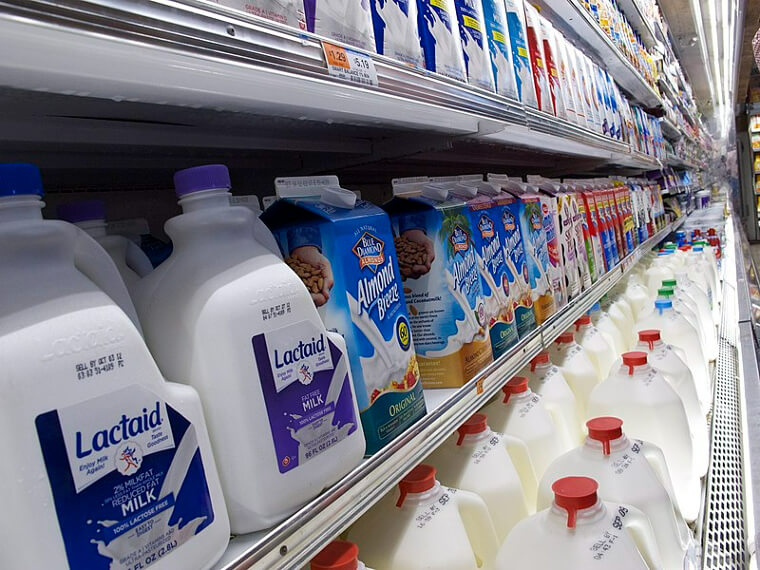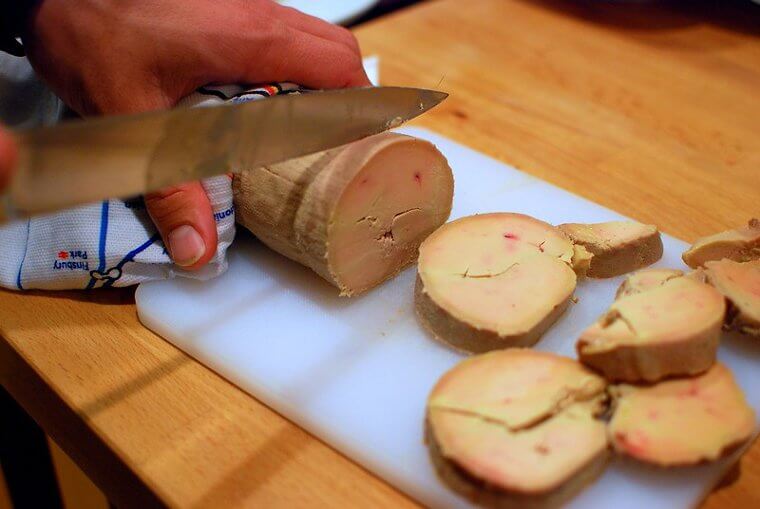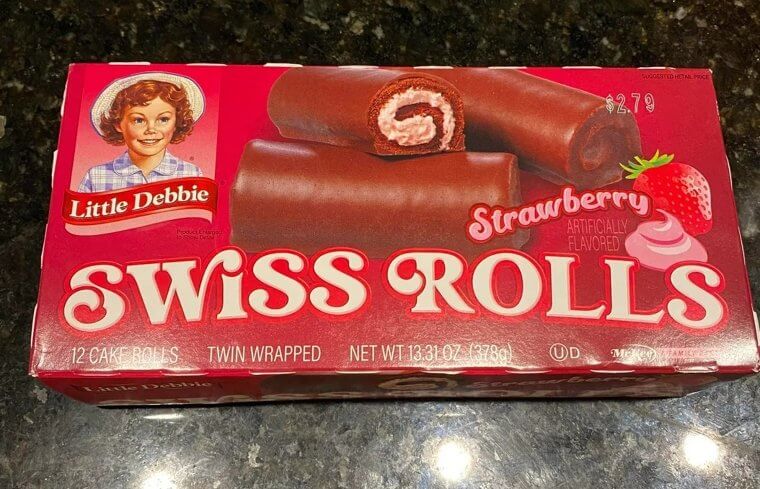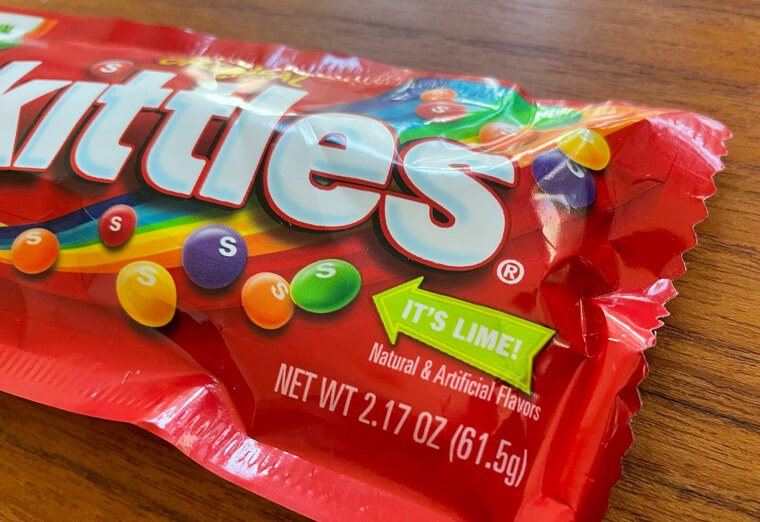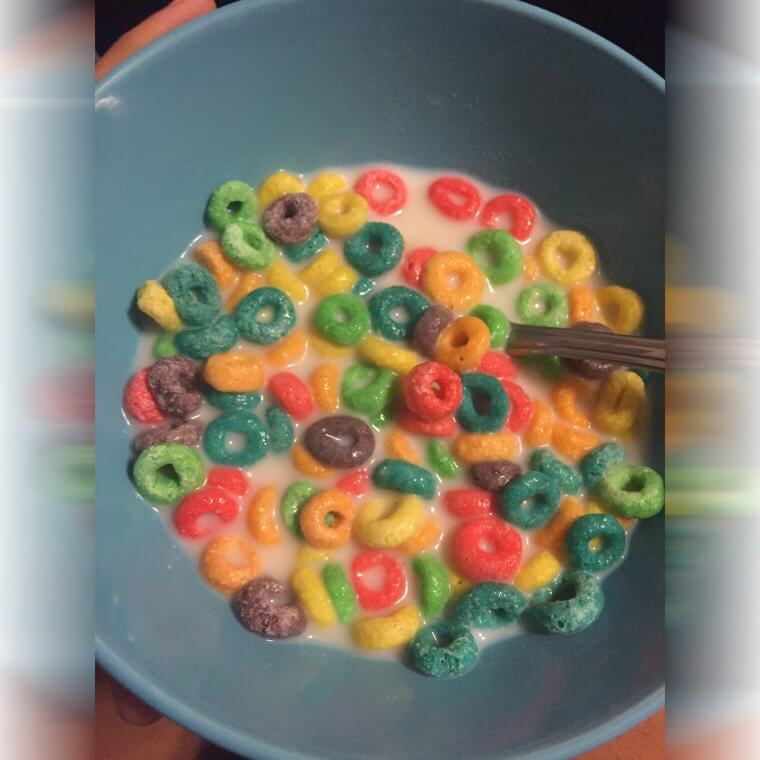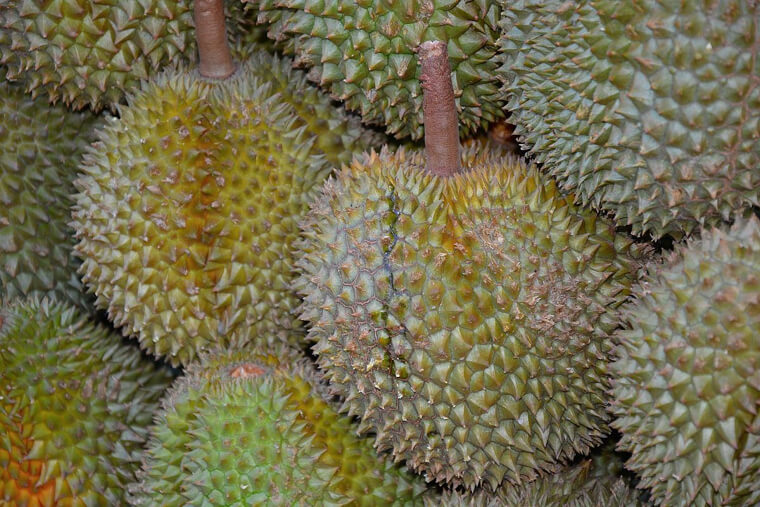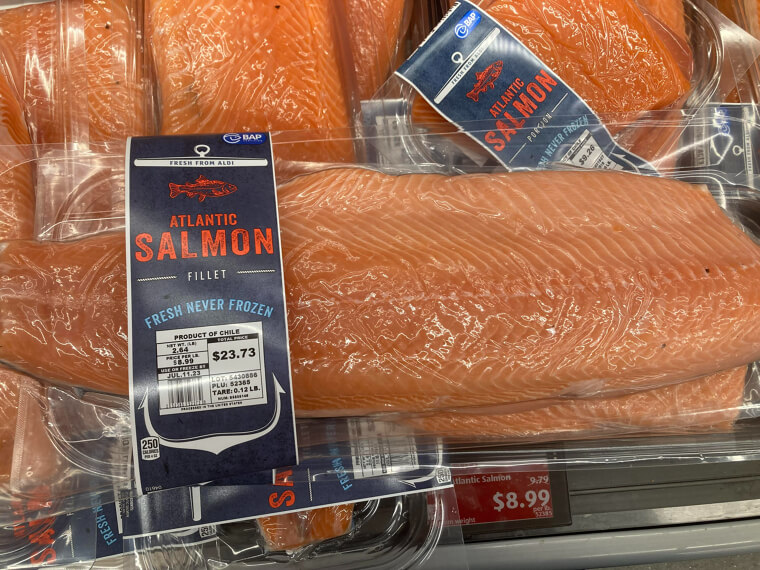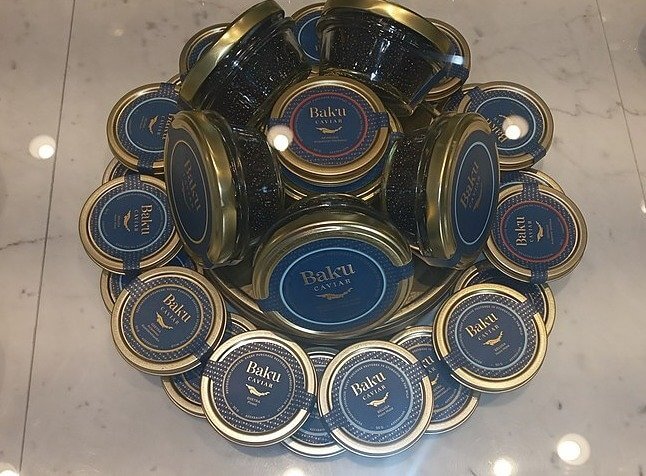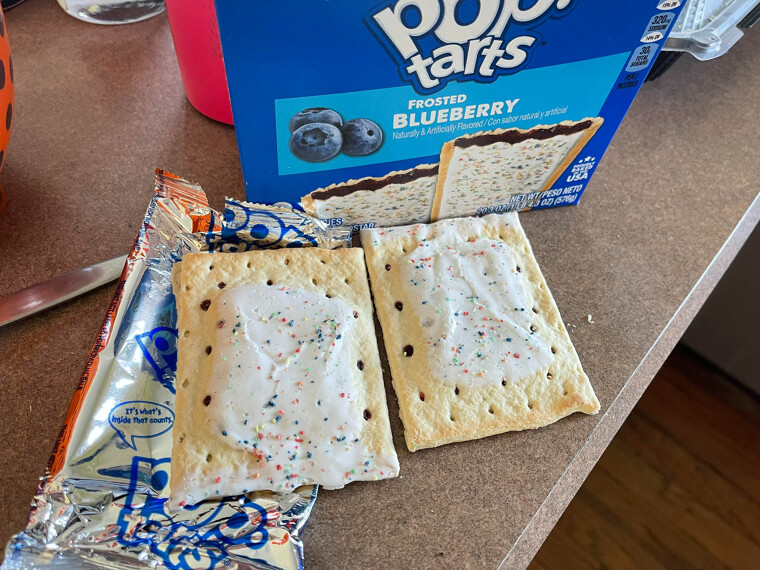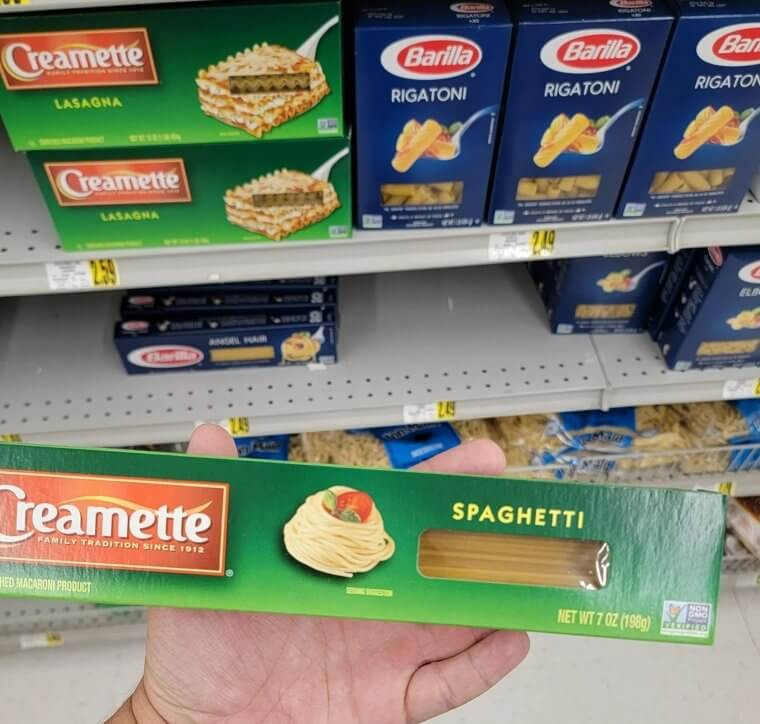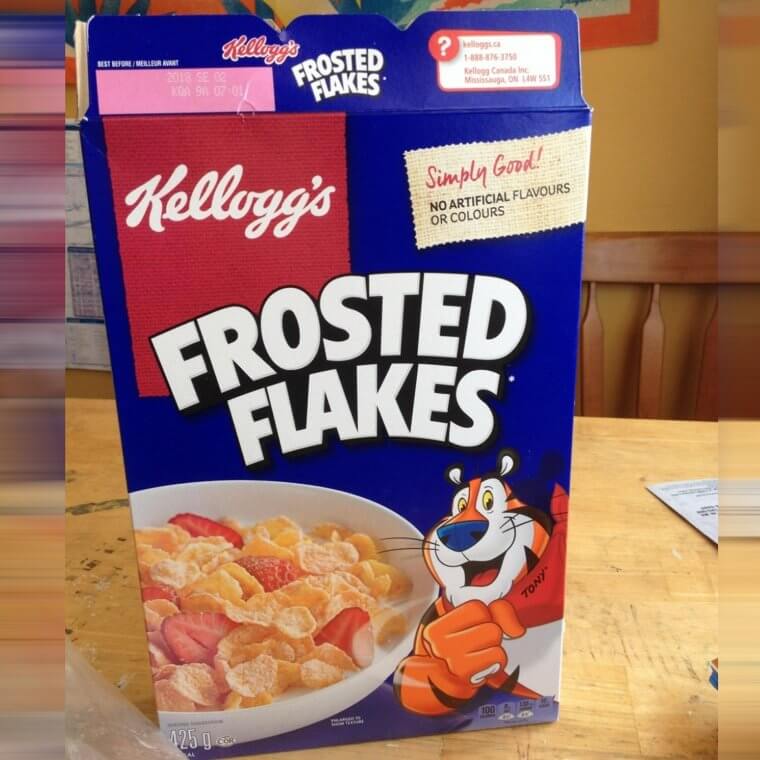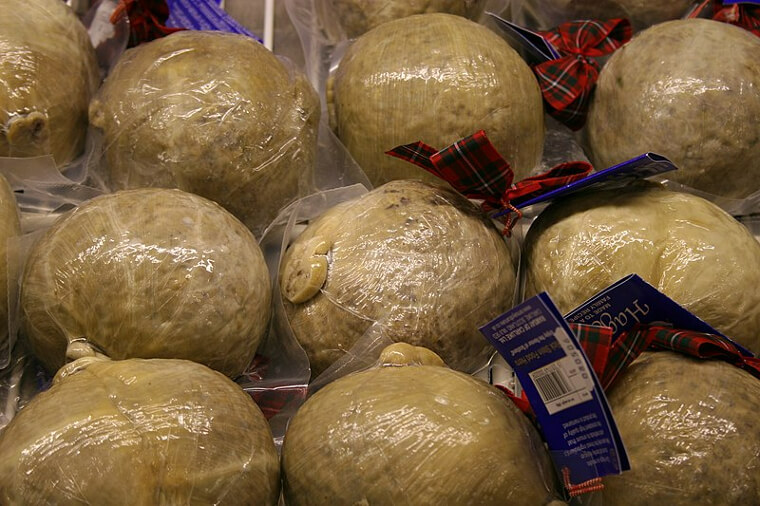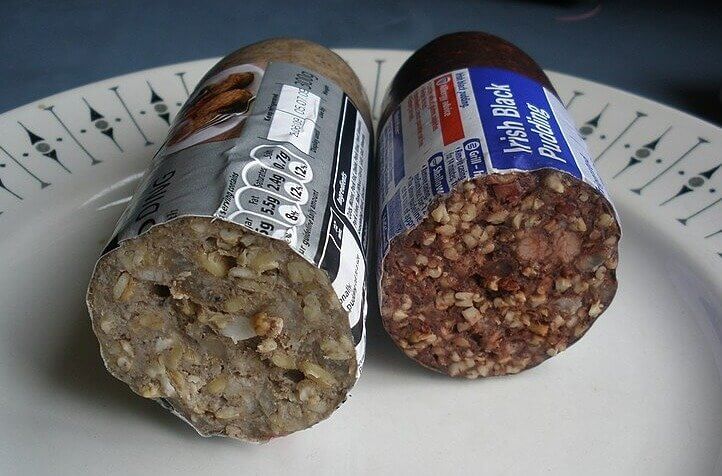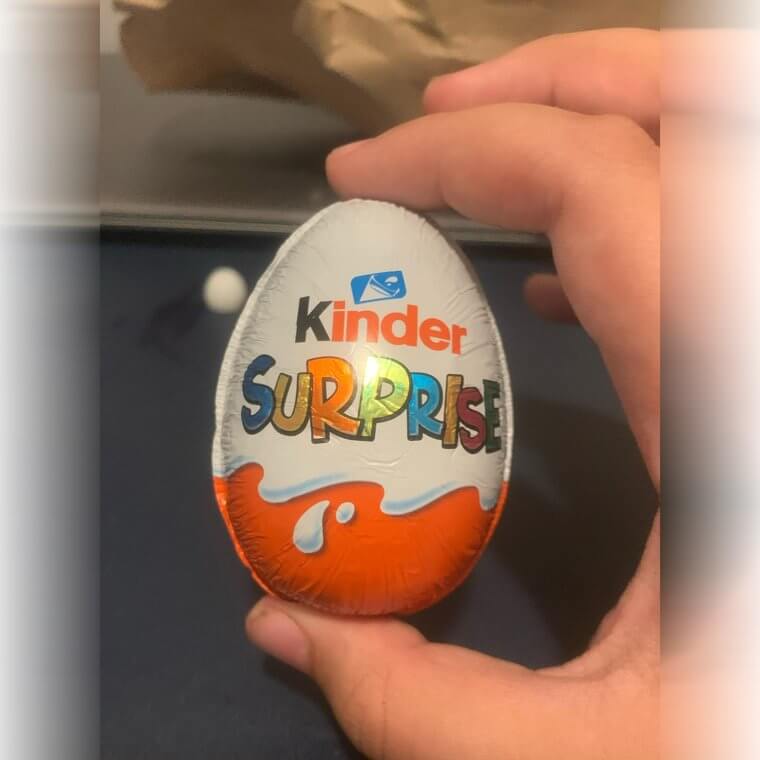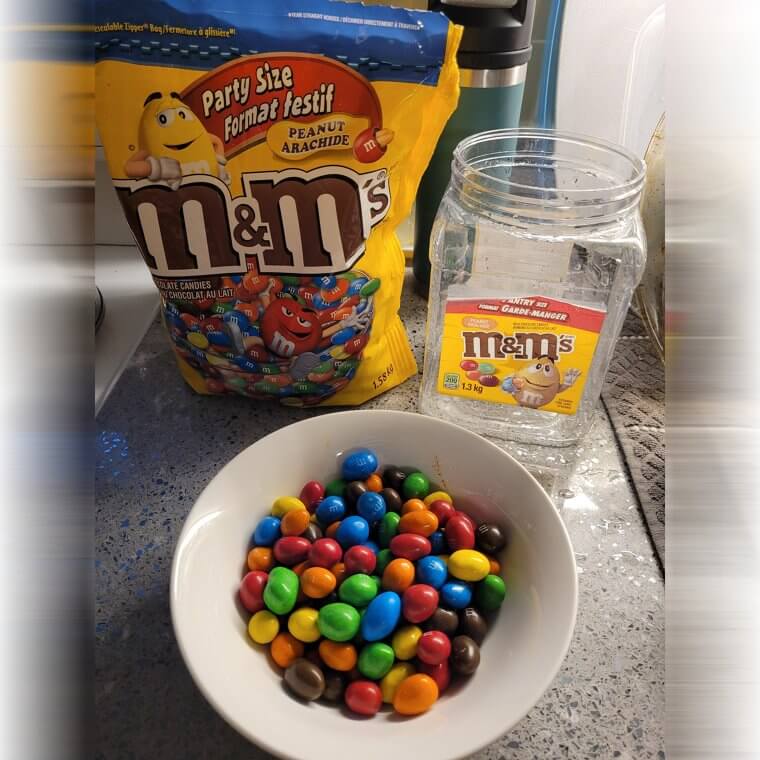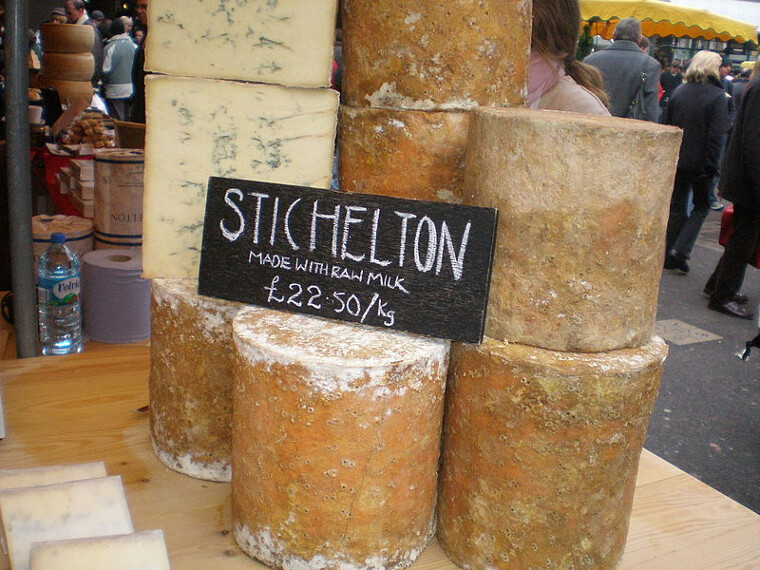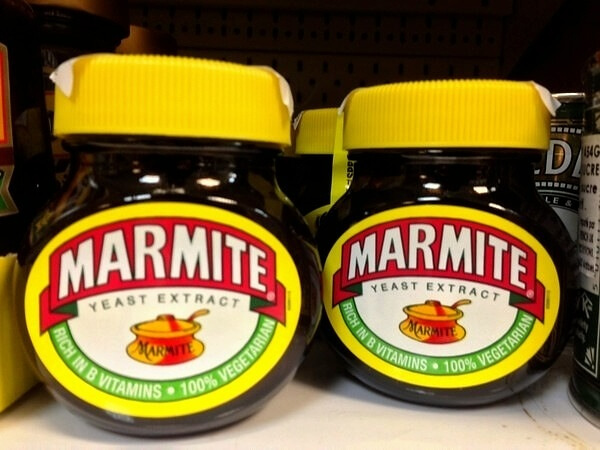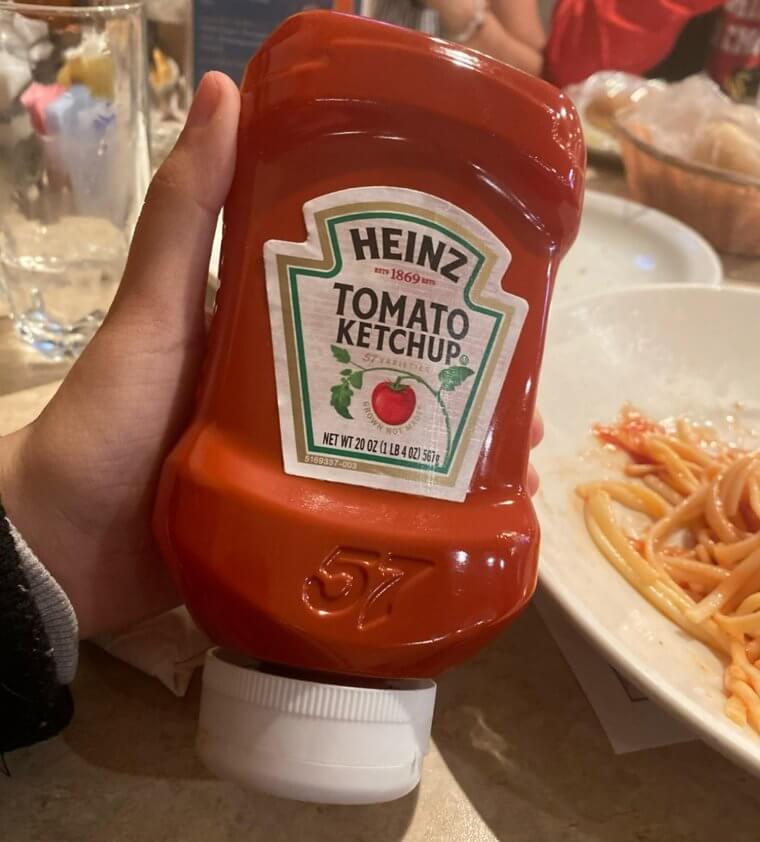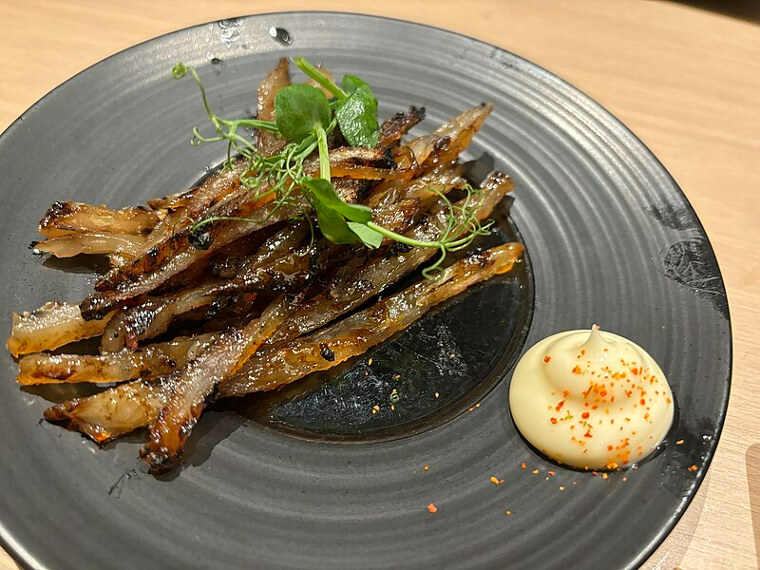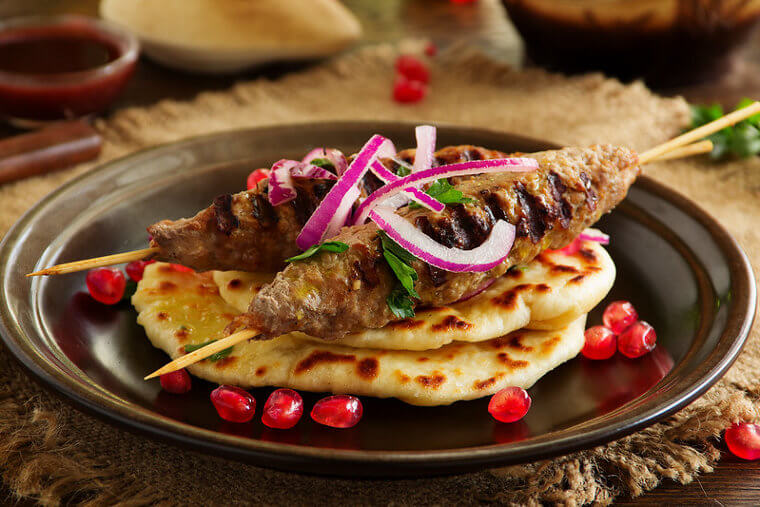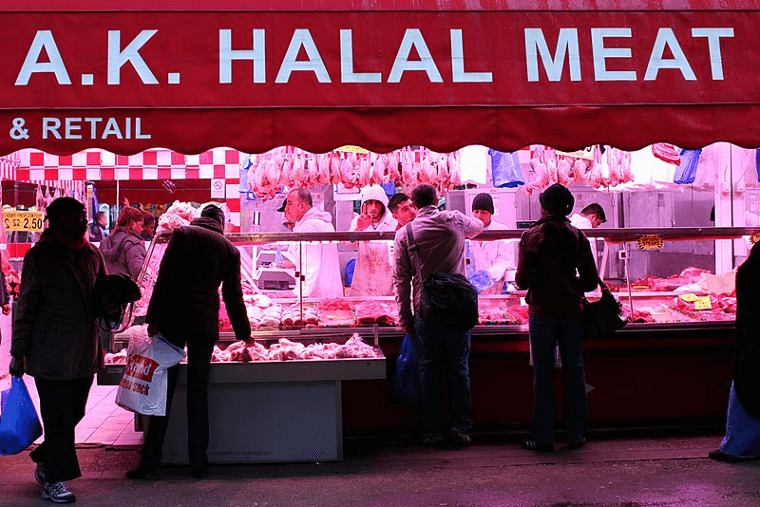Boxed Mac and Cheese
Not sold in: Austria, Norway, and the EU
Why? Potentially dangerous coloring agents
Is there anything better than a delicious plate of mac and cheese at the end of the day? No, we thought not. But while homemade mac and cheese cooked in a kitchen is allowed anywhere around the world, you'll struggle to find boxed mac and cheese in grocery stores in Austria, Norway, and other countries within the European Union.
Why? Potentially dangerous coloring agents
Is there anything better than a delicious plate of mac and cheese at the end of the day? No, we thought not. But while homemade mac and cheese cooked in a kitchen is allowed anywhere around the world, you'll struggle to find boxed mac and cheese in grocery stores in Austria, Norway, and other countries within the European Union.
This is because many boxed mac and cheese products are made with a potentially harmful coloring agent that can be dangerous to children. For that reason, Kraft Heinz Co. has had to rethink their recipe for European customers.
Chewing Gum
Not sold in: Singapore
Why? To help clean up the streets
If you've ever been to Singapore, you'll know that this country prides itself on being clean, cultural, and incredibly desirable. That's exactly why they've banned anyone from chomping on chewing gum while they're walking the streets. In fact, if you're caught with chewing gum in Singapore you could have to pay a $100,000 fine or face up to two years behind bars.
Why? To help clean up the streets
If you've ever been to Singapore, you'll know that this country prides itself on being clean, cultural, and incredibly desirable. That's exactly why they've banned anyone from chomping on chewing gum while they're walking the streets. In fact, if you're caught with chewing gum in Singapore you could have to pay a $100,000 fine or face up to two years behind bars.
There are exceptions for people who need to chew gum for medical reasons, but, for the most part, chewing gum is not allowed. They don't want to dirty up the streets, after all.
Coffee Mate
Not sold in: Hungary, Iceland, Norway, and Denmark
Why? Dangerous ingredients
If black coffee and dairy don't agree with you, Coffee Mate is a great alternative. This lactose-free powdered milk can be added to your coffee, adding a creamy taste and texture that can completely transform your morning cup of Joe. But do you know what Coffee Mate is made from? Well, it's made from partially hydrogenated soybean compounds and cottonseed oils.
Why? Dangerous ingredients
If black coffee and dairy don't agree with you, Coffee Mate is a great alternative. This lactose-free powdered milk can be added to your coffee, adding a creamy taste and texture that can completely transform your morning cup of Joe. But do you know what Coffee Mate is made from? Well, it's made from partially hydrogenated soybean compounds and cottonseed oils.
These ingredients can be harmful when consumed in large quantities, and have been linked to heart disease and other cardiovascular issues. Because of this, it's been banned in Hungary, Iceland, Norway, and Denmark.
Rare Burgers
Not sold in: New Zealand and the UK
Why? Potentially high levels of bacteria
How do you like your burgers? Well-done? Medium? Medium-rare? Well, many people in the U.S. also love to eat a rare burger topped with their choice of condiments. And while some people cringe at the sight of blood coming from the burger, it seems as though some countries have gone one step further and banned rare burgers from their restaurants.
Why? Potentially high levels of bacteria
How do you like your burgers? Well-done? Medium? Medium-rare? Well, many people in the U.S. also love to eat a rare burger topped with their choice of condiments. And while some people cringe at the sight of blood coming from the burger, it seems as though some countries have gone one step further and banned rare burgers from their restaurants.
In New Zealand and parts of the UK, rare burgers aren't allowed to be sold due to the potentially harmful bacteria in the meat. The last thing they want to do is make anyone ill, so they cook their burgers for a bit longer than you might like.
American-Made Sprinkles
Not sold in: Great Britain
Why? Dangerous ingredients
When you spend hours in the kitchen whipping up your own donuts or you buy a colorful cake with your groceries, there's a high chance that you don't give your sprinkles much thought. They're just for added decoration and a bit of sweetness, right? Well, not quite. If you live in Great Britain, you might be interested to know that it's illegal for retailers to sell anything with American-made sprinkles.
Why? Dangerous ingredients
When you spend hours in the kitchen whipping up your own donuts or you buy a colorful cake with your groceries, there's a high chance that you don't give your sprinkles much thought. They're just for added decoration and a bit of sweetness, right? Well, not quite. If you live in Great Britain, you might be interested to know that it's illegal for retailers to sell anything with American-made sprinkles.
That's because American-made sprinkles contain erythrosine - also called FD&C Red No. 3 in the United States. This additive makes the sprinkles red in color, but it can also lead to hyperactivity in children.
French Fries
Not sold in: Singapore, Austria, and the UK
Why? They contain azodicarbonamide
You'll be happy to know that we're not talking about all French fries. Instead, we're talking about certain brands of French fries that can be shoved in the freezer and removed at a moment's notice. And while these freezable fries are a godsend for people who struggle to cook a meal after work or those who are short on time, some brands contain a harmful ingredient.
Why? They contain azodicarbonamide
You'll be happy to know that we're not talking about all French fries. Instead, we're talking about certain brands of French fries that can be shoved in the freezer and removed at a moment's notice. And while these freezable fries are a godsend for people who struggle to cook a meal after work or those who are short on time, some brands contain a harmful ingredient.
Yes, azodicarbonamide is often added to these frozen fries to extend their shelf life even further, but this chemical compound can be harmful to those who have been diagnosed with asthma.
Instant Mashed Potatoes
Not sold in: Europe, Japan, Australia
Why? Dangerous ingredients
If you love getting in the kitchen and cooking up a hearty dinner for your family, you could simply boil and mash your own potatoes. But sometimes, it's just easier (and cheaper) to buy instant mashed potatoes instead. Of course, most people would assume that these would be made with potatoes and very few other ingredients, there's a reason why countries in Europe, Japan and Australia have banned instant mashed potatoes.
Why? Dangerous ingredients
If you love getting in the kitchen and cooking up a hearty dinner for your family, you could simply boil and mash your own potatoes. But sometimes, it's just easier (and cheaper) to buy instant mashed potatoes instead. Of course, most people would assume that these would be made with potatoes and very few other ingredients, there's a reason why countries in Europe, Japan and Australia have banned instant mashed potatoes.
To maintain its taste and flavor in instant form, many brands use the preservative Butylated Hydroxyanisole (BHA). Unfortunately, BHA is a known carcinogen and is extremely dangerous for human consumption.
Post Honey Maid S'mores
Not sold in: Europe, Japan, New Zealand, Australia, and more
Why? Dangerous ingredients
American cereal is famed for being fun and unique, but that doesn't mean that they're healthy or safe for human consumption. In fact, most people love the taste of Post Honey Maid S'Mores and would happily eat them if they didn't know what was in them. But when certain countries looked at the ingredients of this popular cereal, they decided to ban it.
Why? Dangerous ingredients
American cereal is famed for being fun and unique, but that doesn't mean that they're healthy or safe for human consumption. In fact, most people love the taste of Post Honey Maid S'Mores and would happily eat them if they didn't know what was in them. But when certain countries looked at the ingredients of this popular cereal, they decided to ban it.
Post Honey Maid S'mores has been banned in Europe, Japan, New Zealand, Australia, and more due to the added ingredient of Butylated Hydroxytoluene (BHT), which has been linked to cancer diagnoses.
Samosas
Not sold in: Somalia
Why? Religious beliefs
Go to any Middle Eastern or South Asian country and you'll find people cooking samosas in the kitchen or selling this popular food on the street and in restaurants. This tasty snack offers a pastry pocket filled with everything from ground meat to vegetables, and they're extremely popular. However, you won't find samosas in Somalia as the country has decided to ban them for religious reasons.
Why? Religious beliefs
Go to any Middle Eastern or South Asian country and you'll find people cooking samosas in the kitchen or selling this popular food on the street and in restaurants. This tasty snack offers a pastry pocket filled with everything from ground meat to vegetables, and they're extremely popular. However, you won't find samosas in Somalia as the country has decided to ban them for religious reasons.
This food was banned in 2011 because a huge portion of those living in Somalia are Muslim. And in their eyes, the triangular nature of samosas was too similar to the Holy Trinity of Christianity.
American-Made White Bread
Not sold in: UK, Peru, Canada, and more
Why? Dangerous ingredients
If you live in the U.S., there's a high chance that you buy your groceries without really thinking about the ingredients within them. But it might interest you to know that many American-made products are banned around the world - and this is the case with American-made white bread. While this bread may seem like any other bread at first glance, the ingredients are a little different.
Why? Dangerous ingredients
If you live in the U.S., there's a high chance that you buy your groceries without really thinking about the ingredients within them. But it might interest you to know that many American-made products are banned around the world - and this is the case with American-made white bread. While this bread may seem like any other bread at first glance, the ingredients are a little different.
In fact, American-made white bread contains potassium bromate, and this is used to speed up the proving and baking processes. However, potassium bromate has been linked to damage to the nervous system and kidneys, so it's been banned in many countries.
Ritz Crackers
Not sold in: Denmark, Switzerland, Iceland, Norway, Austria, Hungary
Why? Dangerous ingredients
Ritz Crackers are famous across the world, and they're often considered to be the most famous crackers out there. They're particularly popular in the United States, but it's rare to find these crackers in Europe due to one potentially harmful ingredient in them. But what ingredient is it? Well, Rtiz Crackers contain hydrogenated cottonseed oil, which has divided opinions over the years.
Why? Dangerous ingredients
Ritz Crackers are famous across the world, and they're often considered to be the most famous crackers out there. They're particularly popular in the United States, but it's rare to find these crackers in Europe due to one potentially harmful ingredient in them. But what ingredient is it? Well, Rtiz Crackers contain hydrogenated cottonseed oil, which has divided opinions over the years.
Although some experts claim that this oil has major health benefits, it's also been linked to liver damage, infertility, and heart disease over the years. Because of this, it's been banned in Denmark, Switzerland, Iceland, Norway, Austria, and Hungary.
Soybeans
Not sold in: Greece, Luxembourg, Austria, Hungary, and Bulgaria
Why? Genetic modification
As more and more people embrace vegetarian and vegan diets, the need for soybeans has increased dramatically. In order to keep up with this demand, many farmers across the United States have turned to genetic modification to help them grow bigger and fast-growing crops. And while this works in their favor, this doesn't necessarily work in favor of people eating them.
Why? Genetic modification
As more and more people embrace vegetarian and vegan diets, the need for soybeans has increased dramatically. In order to keep up with this demand, many farmers across the United States have turned to genetic modification to help them grow bigger and fast-growing crops. And while this works in their favor, this doesn't necessarily work in favor of people eating them.
In fact, these soybans have been banned in almost half of the countries in the European Union as this genetic modification has been linked to countless health concerns, including cancer.
Mountain Dew
Not sold in: Europe and Japan
Why? Causes birth defects
We're going to go ahead and assume that you've drunk Mountain Dew at least once in your life. It's one of the most popular drinks in America and is also famous across the globe. And while it's not hard to find, you'll struggle to find Mountain Dew in some parts of Europe and in Japan. These countries have banned the soft drink due to its dangerous ingredients.
Why? Causes birth defects
We're going to go ahead and assume that you've drunk Mountain Dew at least once in your life. It's one of the most popular drinks in America and is also famous across the globe. And while it's not hard to find, you'll struggle to find Mountain Dew in some parts of Europe and in Japan. These countries have banned the soft drink due to its dangerous ingredients.
Mountain Dew is chock-full of chemicals that have been linked to birth defects, hearing loss, and psychological issues. Despite this, it's still readily available in the United States - and there's no limit on how much you can buy.
Casu Marzu
Not sold in: The U.S.
Why? The fermentation process
You can't go wrong with cheese, right? Well, according to the U.S., you can. Casu Marzu cheese is banned in the U.S., despite the fact that many others worldwide can't get enough of the hard pecorino cheese outer layer and the soft, creamy texture inside the cheese. But what you might not realize is that the cheese needs to go through a special fermentation process to get this unique texture.
Why? The fermentation process
You can't go wrong with cheese, right? Well, according to the U.S., you can. Casu Marzu cheese is banned in the U.S., despite the fact that many others worldwide can't get enough of the hard pecorino cheese outer layer and the soft, creamy texture inside the cheese. But what you might not realize is that the cheese needs to go through a special fermentation process to get this unique texture.
In fact, this fermentation process includes fly larvae (i.e. maggots) releasing a special liquid to soften the cheese on the inside. With this in mind, the U.S. has decided not to sell maggot cheese.
Tostitos Salsa Con Queso Dip
Not sold in: Norway and Austria
Why? Contains dangerous food colorings
There's no better snack than chips and dip, and many food lovers in the U.S. can't get enough of Tostitos Salsa Con Queso Dip. And while most people love it due to its delicious taste, it's fair to say that the look of this dip is also extremely appealing. After all, it's so bright and vibrant! But this isn't always a good thing.
Why? Contains dangerous food colorings
There's no better snack than chips and dip, and many food lovers in the U.S. can't get enough of Tostitos Salsa Con Queso Dip. And while most people love it due to its delicious taste, it's fair to say that the look of this dip is also extremely appealing. After all, it's so bright and vibrant! But this isn't always a good thing.
To make it this color, the Tostitos Salsa Con Queso Dip is filled with Yellow 5 & Yellow 6 food colorings. These are banned in Norway and Austria as they are linked to severe allergies.
American-Raised Pork
Not sold in: 150 countries around the world
Why? It contains ractopamine
You can find pork in almost every country of the world. And while every country has their own rules and regulations regarding the care and treatment of the pigs and the production of the pork, it seems as though many countries don't want anything to do with American-raised pork. That's because pork from the U.S. is usually full of chemicals - including the dangerous ractopamine.
Why? It contains ractopamine
You can find pork in almost every country of the world. And while every country has their own rules and regulations regarding the care and treatment of the pigs and the production of the pork, it seems as though many countries don't want anything to do with American-raised pork. That's because pork from the U.S. is usually full of chemicals - including the dangerous ractopamine.
Farmers inject their pigs with these chemicals to help them grow as big as possible in a short amount of time, but these chemicals are then ingested by those who eat the pork. That's why 150 countries have banned American-raised pork.
Betty Crocker Fudge Brownie Mix
Not sold in: Denmark, Switzerland, Iceland, Norway, Austria, Hungary
Why? Dangerous ingredients
If you're not someone to spend hours in the kitchen cooking up a storm and baking fresh cakes, then you've probably turned to Betty Crocker on numerous occasions. This brand is perfect for those who want homemade cakes and sweet treats without putting in too much hard work. And while Americans buy these mixes on a regular basis, the same can't be said for Europeans.
Why? Dangerous ingredients
If you're not someone to spend hours in the kitchen cooking up a storm and baking fresh cakes, then you've probably turned to Betty Crocker on numerous occasions. This brand is perfect for those who want homemade cakes and sweet treats without putting in too much hard work. And while Americans buy these mixes on a regular basis, the same can't be said for Europeans.
To be more specific, the Betty Crocker Fudge Brownie mix has been banned in many European countries as it's made from hydrogenated cottonseed oil and soybean oil. Both have the potential to be incredibly harmful when ingested in high quantities.
Fresca
Not sold in: EU
Why? Contains Bromine
Although Fresca is extremely popular in the U.S., it's fairly unknown outside of this country. In fact, most European countries have never heard of Fresca as it's not allowed to be sold overseas. This is due to the fact that this citrus-flavored soda contains bromine - an irritable substance that has been known to cause burns, destroy human tissue membranes, and even trigger schizophrenia.
Why? Contains Bromine
Although Fresca is extremely popular in the U.S., it's fairly unknown outside of this country. In fact, most European countries have never heard of Fresca as it's not allowed to be sold overseas. This is due to the fact that this citrus-flavored soda contains bromine - an irritable substance that has been known to cause burns, destroy human tissue membranes, and even trigger schizophrenia.
It's no wonder that the European Union has banned this substance, but that hasn't stopped it from being sold elsewhere. However, it seems as though the recipe won't be changing anytime soon.
Hot Dogs
Not sold in: United Arab Emirates
Why? Reduce obesity
Is there anything better than a hot dog covered in mustard and ketchup? And while you'll find that the choice of condiments differs around the world, most countries have hot dogs in their grocery stores and in restaurants. This isn't the case in the United Arab Emirates, though. After a 2014 study discovered that 14% of school-age children were overweight, a decision was made to ban hot dogs in schools.
Why? Reduce obesity
Is there anything better than a hot dog covered in mustard and ketchup? And while you'll find that the choice of condiments differs around the world, most countries have hot dogs in their grocery stores and in restaurants. This isn't the case in the United Arab Emirates, though. After a 2014 study discovered that 14% of school-age children were overweight, a decision was made to ban hot dogs in schools.
Now, schools focus on giving their students food that's high in nutritional value rather than hot dogs that are full of sodium, fat, and processed meat. They also banned soda and potato chips, too.
Raw Milk
Not sold in: UK, Canada, some of the U.S.
Why? Health concerns
Food trends come and go, with many claiming to have nutritional benefits. And while some people have found success and enjoyment in drinking raw, unpasteurized milk, you'll struggle to find this drink in the UK, Canada, and some areas of the U.S. Yes, while there are certainly some health benefits to drinking raw milk - such as improved digestion - the health concerns ultimately outweigh the benefits.
Why? Health concerns
Food trends come and go, with many claiming to have nutritional benefits. And while some people have found success and enjoyment in drinking raw, unpasteurized milk, you'll struggle to find this drink in the UK, Canada, and some areas of the U.S. Yes, while there are certainly some health benefits to drinking raw milk - such as improved digestion - the health concerns ultimately outweigh the benefits.
Due to the risk of Salmonella and Listeriosis, many countries will only sell milk that has been pasteurized to remove the risk of germs and potential illness. And it seems as though it'll stay that way.
Foie Gras
Not sold in: 16 countries around the world
Why? Animal cruelty
If you've ever watched a fancy cooking show or been to an expensive restaurant, you may have come across foie gras. But do you actually know that this food is? Well, foie gras is essentially duck liver - but it's famed for being extra creamy and delicate. To achieve this texture, farmers force-feed the ducks twice a day for at least a fortnight before the ducks are then killed.
Why? Animal cruelty
If you've ever watched a fancy cooking show or been to an expensive restaurant, you may have come across foie gras. But do you actually know that this food is? Well, foie gras is essentially duck liver - but it's famed for being extra creamy and delicate. To achieve this texture, farmers force-feed the ducks twice a day for at least a fortnight before the ducks are then killed.
As you can imagine, this process hasn't gone down well with many countries around the world. Because of this, 16 countries - including Australia, Israel, Denmark, Italy, and Germany - have banned it due to animal cruelty.
Little Debbie Swiss Rolls
Not sold in: Norway and Austria
Why? Dangerous food colorings
If you live in the U.S., there's a high chance that you're familiar with Little Debbie Swiss Rolls. This mixture of chocolate cake and cream seems like it would be simple enough in terms of ingredients, but the reality is that the ingredients are more complex than that. In fact, these Swiss rolls are full of dangerous food colorings called Yellow 5 and Red 40.
Why? Dangerous food colorings
If you live in the U.S., there's a high chance that you're familiar with Little Debbie Swiss Rolls. This mixture of chocolate cake and cream seems like it would be simple enough in terms of ingredients, but the reality is that the ingredients are more complex than that. In fact, these Swiss rolls are full of dangerous food colorings called Yellow 5 and Red 40.
Scientific research has found a link between these specific food colorings and behavioral issues in youngsters, as well as birth defects and organ failure. Because of this, Little Debbie Swiss Rolls are completely banned in Norway and Austria.
Skittles
Not sold in: Sweden and Norway
Why? Dangerous artificial colors
If you love tasting the rainbow, there's a high chance that you also love Skittles. This candy has been a fan-favorite for decades, but it should come as no surprise to learn that this candy is full of problematic ingredients. In fact, the inclusion of the artificial colors of Yellow 5 & Yellow 6 have led to Skittles being banned in Sweden and Norway.
Why? Dangerous artificial colors
If you love tasting the rainbow, there's a high chance that you also love Skittles. This candy has been a fan-favorite for decades, but it should come as no surprise to learn that this candy is full of problematic ingredients. In fact, the inclusion of the artificial colors of Yellow 5 & Yellow 6 have led to Skittles being banned in Sweden and Norway.
Both of these artificial colors are linked to hyperactivity and even allergic reactions among children and adults alike, and Norway and Sweden don't want their citizens being exposed to such ingredients.
Fruit Loops
Not sold in: Austria, Norway, France, Finland
Why? Artificial colors
Many countries are now trying to limit people's exposure to artificial preservatives and food colorings, which is why the popular cereal Fruit Loops has come under fire over the years. Although most kids want to try this colorful cereal out for themselves, the reality is that it's not healthy at all. Not only is it full of cereal, but it's also full of artificial colors and flavorings.
Why? Artificial colors
Many countries are now trying to limit people's exposure to artificial preservatives and food colorings, which is why the popular cereal Fruit Loops has come under fire over the years. Although most kids want to try this colorful cereal out for themselves, the reality is that it's not healthy at all. Not only is it full of cereal, but it's also full of artificial colors and flavorings.
It's the colorings that have become a bone of contention for many European countries, as they have been linked to complications in cell development. As a result, they have decided to ban the cereal completely.
Durian Fruit
Not sold in: Singapore
Why? The pungent smell
Most countries want their citizens to eat more fruit and vegetables for their nutritional value. And while fruits and vegetables are certainly important in Singapore, you'll struggle to buy a durian fruit with the rest of your groceries. That's because durian fruit isn't like strawberries or apples. Instead, it's earned the nickname of "the smelliest fruit" due to the pungent smell that comes from it.
Why? The pungent smell
Most countries want their citizens to eat more fruit and vegetables for their nutritional value. And while fruits and vegetables are certainly important in Singapore, you'll struggle to buy a durian fruit with the rest of your groceries. That's because durian fruit isn't like strawberries or apples. Instead, it's earned the nickname of "the smelliest fruit" due to the pungent smell that comes from it.
Some people even say that a durian fruit smells like a combination of rotting onions, sulfur, honey, and sewage, so we can understand why the government of Singapore doesn't want this stuff on the streets.
Farm-Raised Salmon
Not sold in: Australia and New Zealand
Why? Health concerns
Salmon is one of the most popular fish to cook with, with many people around the world adding salmon to their grocery list and adding it to the other ingredients in their kitchen. But there's a big difference between wild salmon and farm-raised salmon - especially in terms of their color and their nutritional properties. In fact, the health concerns associated with farm-raised salmon has led Australia and New Zealand to ban it altogether.
Why? Health concerns
Salmon is one of the most popular fish to cook with, with many people around the world adding salmon to their grocery list and adding it to the other ingredients in their kitchen. But there's a big difference between wild salmon and farm-raised salmon - especially in terms of their color and their nutritional properties. In fact, the health concerns associated with farm-raised salmon has led Australia and New Zealand to ban it altogether.
As farm-raised salmon is fed petrochemicals to make them pinker in color, these petrochemicals pose a danger to human health when consumed. It's even been linked to eye problems in humans.
Beluga Caviar
Not sold in: United States
Why? Conservation reasons
It's safe to say that most people don't buy caviar with the rest of their groceries, but caviar is still a popular high-end product across the world. It's often reserved for Michelin-star restaurants and fancy hotels, and there are a few different types out there. But one thing you won't find in the United States is Beluga caviar. Dubbed the 'black gold' option for caviar lovers, it's a delicacy for many.
Why? Conservation reasons
It's safe to say that most people don't buy caviar with the rest of their groceries, but caviar is still a popular high-end product across the world. It's often reserved for Michelin-star restaurants and fancy hotels, and there are a few different types out there. But one thing you won't find in the United States is Beluga caviar. Dubbed the 'black gold' option for caviar lovers, it's a delicacy for many.
However, Beluga caviar has come under fire over the past few years due to conservation concerns around the critically endangered Beluga whale. Because of this, Beluga caviar is now a banned product.
Pop -Tarts
Not sold in: Europe
Why? Dangerous food colorings
Pop-Tarts are an American institution. Often eaten for breakfast, dessert, or just as a snack, Pop-Tarts also come in so many different amazing flavors. And while most people are under no illusion that Pop-Tarts are healthy, it's fair to say that most people don't understand just how unhealthy they are. In fact, they contain so many dangerous food colorings that they're banned in many European countries.
Why? Dangerous food colorings
Pop-Tarts are an American institution. Often eaten for breakfast, dessert, or just as a snack, Pop-Tarts also come in so many different amazing flavors. And while most people are under no illusion that Pop-Tarts are healthy, it's fair to say that most people don't understand just how unhealthy they are. In fact, they contain so many dangerous food colorings that they're banned in many European countries.
Many of the food colorings in Pop-Tarts have been linked to childhood behavioral issues, and that's before we mention the amount of sugar in these types of food. Because of this, some countries will only sell Pop-Tarts if there's a warning on the packaging.
Boxed Pasta
Not sold in: Australia and EU
Why? Contains azodicarbonamide
If you're not a cook, boxed and packet foods can make your life so much easier. You can buy them alongside all of your other groceries, and whip them up for dinner in just a few minutes. But while they may be easy to make, boxed pasta kits also contain azodicarbonamide - and this has led to them being banned in Australia and countries within the European Union.
Why? Contains azodicarbonamide
If you're not a cook, boxed and packet foods can make your life so much easier. You can buy them alongside all of your other groceries, and whip them up for dinner in just a few minutes. But while they may be easy to make, boxed pasta kits also contain azodicarbonamide - and this has led to them being banned in Australia and countries within the European Union.
Although azodicarbonamide makes the color of the pasta pop and the dough softer, the reality of azodicarbonamide is that this chemical is considered to be very toxic to human life.
Frosted Flakes
Not sold in: Japan and EU
Why? Contains BHT
There are so many different breakfast cereals out there, but there's no doubt about the fact that Frosted Flakes is one of the most popular. Many kids beg their parents to buy this cereal for them, and this is largely due to the fact that it's filled with sugar. But that's not the reason why Frosted Flakes have been banned in Japan and many countries of the European Union.
Why? Contains BHT
There are so many different breakfast cereals out there, but there's no doubt about the fact that Frosted Flakes is one of the most popular. Many kids beg their parents to buy this cereal for them, and this is largely due to the fact that it's filled with sugar. But that's not the reason why Frosted Flakes have been banned in Japan and many countries of the European Union.
That's actually because Frosted Flakes contain butylated hydroxytoluene (BHT), which is often used in the making of medicines. In high doses, this BHT can be extremely toxic and unsafe for human consumption.
Haggis
Not sold in: United States
Why? Breaks Department of Agriculture laws
If you know anything about Scotland and Scottish people, you'll know that they love haggis. In fact, it's their national dish! And while they can't get enough of the stuffed lungs and heart of a sheep, Scottish people will struggle to find this taste of home if they move to the United States. That's because haggis has been banned completely in the U.S.
Why? Breaks Department of Agriculture laws
If you know anything about Scotland and Scottish people, you'll know that they love haggis. In fact, it's their national dish! And while they can't get enough of the stuffed lungs and heart of a sheep, Scottish people will struggle to find this taste of home if they move to the United States. That's because haggis has been banned completely in the U.S.
The production of haggis actually breaks a Department of Agriculture law that came into place in 1971. This law states that the consumption of animal lungs is illegal, so there's no way that haggis could slip through the net.
Black Pudding
Not sold in: United States
Why? Sanitary concerns
Whether you know it as black pudding or blood sausage, there's no doubt about the fact that this food is an acquired taste. An old-school British cuisine, this food is a mixture of oatmeal, barley, and the blood of a pig or a cow. That mixture is then stuffed inside the intestine of the cow and cut up like a sausage. You won't be able to eat it in the U.S., though.
Why? Sanitary concerns
Whether you know it as black pudding or blood sausage, there's no doubt about the fact that this food is an acquired taste. An old-school British cuisine, this food is a mixture of oatmeal, barley, and the blood of a pig or a cow. That mixture is then stuffed inside the intestine of the cow and cut up like a sausage. You won't be able to eat it in the U.S., though.
Black pudding has been banned in the U.S. due to sanitary concerns and the risk of bacteria transfer. After all, eating blood isn't something you should be doing on a regular basis.
Kinder Surprise Eggs
Not sold in: United States
Why? Choking hazard
Although the ban on Kinder Surprise Eggs was actually lifted in 2018, the fact that they were banned in the first place sparked a huge shift in the chocolate world. After all, Kinder Surprise Eggs were once one of the most popular candy options on the market thanks to the inclusion of a plastic egg with a toy inside of it. Then, it all changed.
Why? Choking hazard
Although the ban on Kinder Surprise Eggs was actually lifted in 2018, the fact that they were banned in the first place sparked a huge shift in the chocolate world. After all, Kinder Surprise Eggs were once one of the most popular candy options on the market thanks to the inclusion of a plastic egg with a toy inside of it. Then, it all changed.
The FDA ultimately decided that the plastic egg and the toy were too much of a choking hazard for young children. But with a few changes to the design, they were legalized again.
M&M's
Not sold in: Sweden
Why? Branding conflict
Everything from their outlandish commercials to their wide variety of flavors has led M&M's to become one of the most popular candies in the world. Most people have their own favorite flavor, and some even stock their kitchen cupboards with these delicious treats. But don't try and find packets of M&M's in Sweden, as you'll be looking for a very long time and won't have any luck.
Why? Branding conflict
Everything from their outlandish commercials to their wide variety of flavors has led M&M's to become one of the most popular candies in the world. Most people have their own favorite flavor, and some even stock their kitchen cupboards with these delicious treats. But don't try and find packets of M&M's in Sweden, as you'll be looking for a very long time and won't have any luck.
M&M's aren't allowed to be on sale in Sweden due to branding conflicts with a Swedish snack called 'M' by Mondelez. Not only is their logo very similar, but the snack itself is also very similar.
Unpasteurized Cheese
Not sold in: U.S.
Why? Bacteria risks
You probably don't need us to tell you that the U.S. is full of cheese. If you head to the grocery store, you'll be greeted with so many different cheeses you won't know which one to choose. But have you ever noticed that there's never any unpasteurized cheese on the cheese counter? That's because it's actually banned in the U.S. due to bacteria risks associated with it.
Why? Bacteria risks
You probably don't need us to tell you that the U.S. is full of cheese. If you head to the grocery store, you'll be greeted with so many different cheeses you won't know which one to choose. But have you ever noticed that there's never any unpasteurized cheese on the cheese counter? That's because it's actually banned in the U.S. due to bacteria risks associated with it.
Although scientific research seems to suggest otherwise, there are still claims that unpasteurized cheeses can result in harmful bacteria that could make someone very ill. So, Americans choose not to risk it.
Marmite
Not sold in: Canada and Denmark
Why? Harmful additives
If you've ever been to the UK, you may have come across Marmite. Similar to Australia's Vegemite, Marmite is an acquired taste and something you either love or hate. But while many people love the rich yeast paste, it's not quite made the same mark across the globe. This might have something to do with the fact that Marmite has actually been banned in Canada and Denmark.
Why? Harmful additives
If you've ever been to the UK, you may have come across Marmite. Similar to Australia's Vegemite, Marmite is an acquired taste and something you either love or hate. But while many people love the rich yeast paste, it's not quite made the same mark across the globe. This might have something to do with the fact that Marmite has actually been banned in Canada and Denmark.
To ensure Marmite stays fresh for months at a time, it's enriched with quite a few additives. It's these additives that has led these countries to stop selling it in grocery stores.
Ketchup
Not sold in: France
Why? Cultural issues
Ketchup is one of the most popular condiments in the world. Go to any country, and you won't have to search too hard to find some form of Ketchup on the shelves. And while you can buy Ketchup in France, Ketchup has been banned in French schools. Because of this, kids aren't allowed to eat this condiment with their French fries at all.
Why? Cultural issues
Ketchup is one of the most popular condiments in the world. Go to any country, and you won't have to search too hard to find some form of Ketchup on the shelves. And while you can buy Ketchup in France, Ketchup has been banned in French schools. Because of this, kids aren't allowed to eat this condiment with their French fries at all.
This is because French authorities don't want children to dull their world-renowned palettes. Instead, they want their children to be brought up on traditional French cuisine and experience famous French dishes instead.
Fugu
Not sold in: The U.S. and Europe
Why? Can be fatal
While undercooked chicken and meat can result in a bad case of food poisoning, undercooked fugu is a whole different ballgame. This pufferfish dish is so dangerous that it can kill you if not prepared properly, a unique trait made famous by a 1991 episode of The Simpsons. In fact, there are only a few chefs out there trained to prepare such a dish.
Why? Can be fatal
While undercooked chicken and meat can result in a bad case of food poisoning, undercooked fugu is a whole different ballgame. This pufferfish dish is so dangerous that it can kill you if not prepared properly, a unique trait made famous by a 1991 episode of The Simpsons. In fact, there are only a few chefs out there trained to prepare such a dish.
Fugu is so dangerous and it's crazy to think that one bite is the 1,000 times deadlier than cyanide. What's even crazier is that the only countries that have banned fugu are America and those in the European Union.
Kebabs
Not sold in: Venice
Why? Bad for their reputation
In many countries, kebabs are part and parcel of everyday life. These things are easy to be whipped up in the kitchen, and you don't have to walk too far to find the nearest restaurant selling these sticks of meat and vegetables. But if you ever find yourself on the hunt for a kebab in Venice, you might want to stop looking as kebabs have been banned in Venice.
Why? Bad for their reputation
In many countries, kebabs are part and parcel of everyday life. These things are easy to be whipped up in the kitchen, and you don't have to walk too far to find the nearest restaurant selling these sticks of meat and vegetables. But if you ever find yourself on the hunt for a kebab in Venice, you might want to stop looking as kebabs have been banned in Venice.
This isn't anything to do with the ingredients or additives in this tasty snack, though. It's just because those in charge believe that "low-quality" kebabs will hurt their cultural image and impact their reputation.
Halal and Kosher Meat
Not sold in: Greece
Why? Animal welfare violations
Although some religions require Halal and Kosher meat, you'll struggle to find either of these meats in Greece. While the exact processes are different, they generally follow the same rules and involve slaughtering animals without stunning them first - a practice that is common for non-Halal and non-Kosher meat. Unfortunately, this is not something that has gone down well with the government of Greece.
Why? Animal welfare violations
Although some religions require Halal and Kosher meat, you'll struggle to find either of these meats in Greece. While the exact processes are different, they generally follow the same rules and involve slaughtering animals without stunning them first - a practice that is common for non-Halal and non-Kosher meat. Unfortunately, this is not something that has gone down well with the government of Greece.
They believe that the processes of making Halal and Kosher meat violate their Animal Welfare Acts as the animals are fully conscious when they are killed. Because of this, it's not readily available for those who need it.
